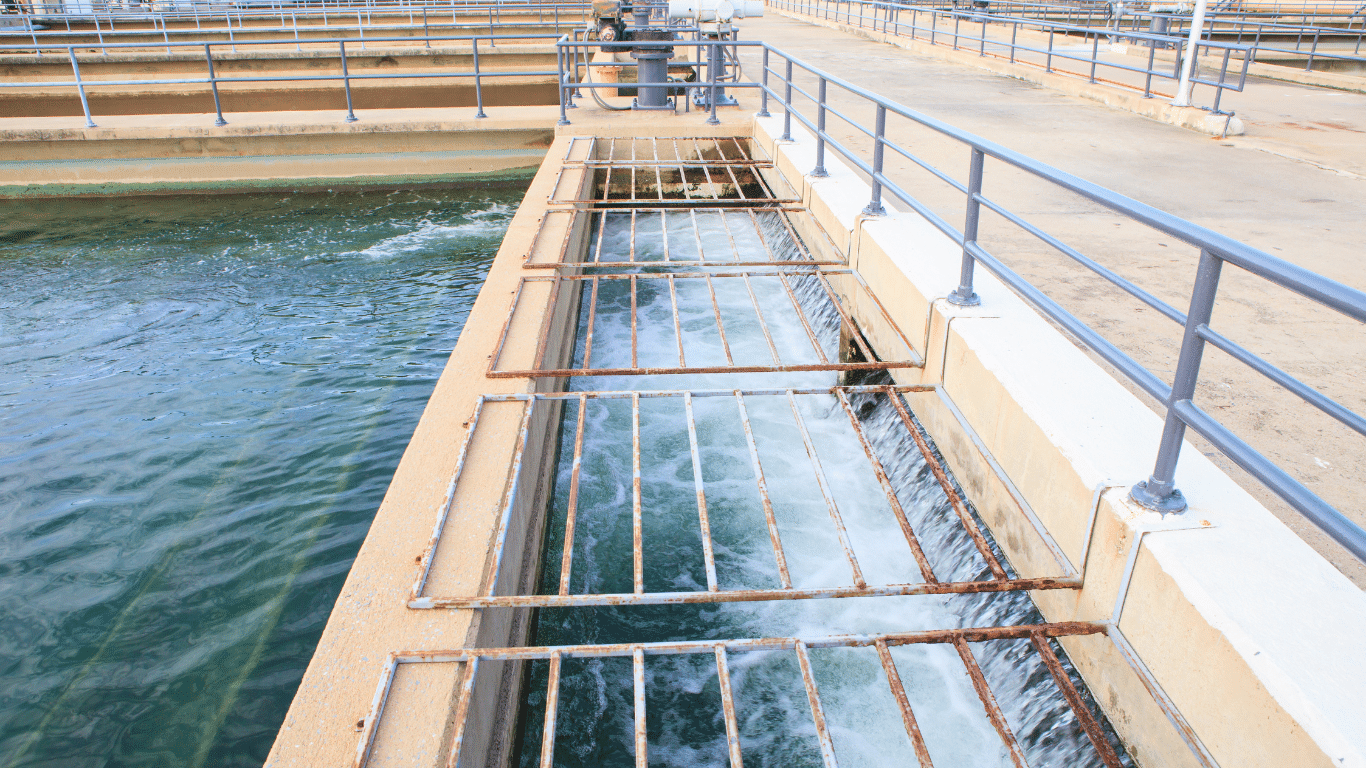The importance of fluid mechanics in civil engineering is necessary for every civil engineer to know because fluid mechanics plays an essential role in civil engineering. After all, it helps us understand how fluids like water and air behave in various structures and environments. In simpler terms, it’s all about how liquids and gases move and interact with solids. In civil engineering, this knowledge is applied to the design and construction of things like bridges, dams, pipelines, and even buildings.
For example, fluid mechanics helps engineers design efficient water supply systems, ensure proper drainage to prevent flooding, and calculate loads on structures due to wind or water pressure. Understanding fluid behavior is essential for ensuring the safety, functionality, and durability of civil engineering projects, making it a vital aspect of the field.
The Importance of Fluid Mechanics in Civil Engineering
Civil engineering is a vast field that deals with the design, construction, and maintenance of infrastructure, such as buildings, bridges, roads, and dams. While many people may think of civil engineering as primarily concerned with solid structures, fluid mechanics plays a crucial role in this discipline as well. Fluid mechanics is the study of how fluids (liquids and gases) behave and interact with their surroundings, and it is indispensable in various aspects of civil engineering. In this article, we will explore the significance of fluid mechanics in civil engineering, covering its applications, principles, and real-world examples.
Understanding Fluid Mechanics
Before delving into its applications, let’s grasp the basic concepts of fluid mechanics. Fluid mechanics is divided into two main branches: fluid statics and fluid dynamics. Fluid statics deals with fluids at rest, while fluid dynamics studies fluids in motion. Key principles of fluid mechanics include viscosity, density, pressure, and flow rate.
Applications of Fluid Mechanics in Civil Engineering
Fluid mechanics is integral to numerous aspects of civil engineering, including:
- Hydraulic Structures
- Water Supply and Distribution
- Coastal Engineering
- Environmental Engineering
- Geotechnical Engineering
Hydraulic Structures Hydraulic structures such as dams, weirs, and spillways rely on fluid mechanics principles for their design and operation. Engineers must understand fluid behavior to ensure the safe and efficient management of water resources. For example, fluid mechanics calculations help determine the optimal dimensions and configurations of dams to withstand water pressure and prevent flooding.
Water Supply and Distribution Fluid mechanics is essential in the design of water supply systems, including pipes, pumps, and storage tanks. Engineers use fluid dynamics principles to calculate water flow rates, pressure losses, and distribution networks. By applying these principles, they can ensure that communities receive an adequate and reliable water supply.
Coastal Engineering Coastal engineering involves the design of structures to protect coastlines from erosion, flooding, and storm surges. Fluid mechanics plays a crucial role in understanding wave behavior, sediment transport, and shoreline stability. Engineers use this knowledge to design coastal defenses such as seawalls, breakwaters, and beach nourishment projects.
Environmental Engineering Fluid mechanics is vital in environmental engineering for studying pollutant dispersion, air quality, and wastewater treatment. By analyzing fluid flow patterns and pollutant transport mechanisms, engineers can assess the environmental impact of infrastructure projects and develop strategies to mitigate pollution.
Geotechnical Engineering In geotechnical engineering, fluid mechanics is employed to analyze the behavior of soils and rock masses. Concepts such as seepage, pore pressure, and soil consolidation are essential for understanding groundwater flow and slope stability. Engineers use this knowledge to design foundations, retaining structures, and underground excavations.
Real-World Examples
Let’s explore some real-world examples that highlight the importance of fluid mechanics in civil engineering:
- Golden Gate Bridge
- Panama Canal
- Flood Control Systems
Golden Gate Bridge The design of the iconic Golden Gate Bridge in San Francisco involved extensive fluid mechanics analysis. Engineers had to account for strong winds, turbulent water currents, and seismic activity. By applying fluid dynamics principles, they ensured that the bridge could withstand these environmental forces while maintaining structural integrity.
Panama Canal The Panama Canal is a marvel of engineering that relies on fluid mechanics for its operation. The canal’s locks use the principles of buoyancy and fluid pressure to raise and lower ships between different water levels. Engineers carefully calculated water flow rates and pressure gradients to facilitate the safe passage of vessels through the canal.
Flood Control Systems Cities around the world implement flood control systems to protect against the devastating effects of flooding. These systems often incorporate levees, flood walls, and drainage networks designed using fluid mechanics principles. By understanding how water behaves in different scenarios, engineers can develop effective flood mitigation strategies and minimize the risk to communities.
Some key points: the importance of fluid mechanics in civil engineering
Important Applications of Fluid Mechanics in Civil Engineering
Fluid mechanics finds numerous applications in civil engineering, contributing to the design, construction, and maintenance of infrastructure. One crucial application is in hydraulic structures like dams and canals, where engineers use fluid mechanics principles to ensure the safe and efficient management of water resources. Additionally, fluid mechanics plays a key role in water supply systems, coastal engineering projects, environmental assessments, and geotechnical analyses.
Why Fluid Mechanics is Important
Fluid mechanics is vital because it provides engineers with a fundamental understanding of how fluids behave and interact with their surroundings. This knowledge is essential for designing structures that can withstand fluid forces such as pressure, flow, and turbulence. By applying fluid mechanics principles, engineers can optimize the performance, safety, and longevity of civil engineering projects.
The Subject of Fluid Mechanics in Civil Engineering
In civil engineering, fluid mechanics encompasses the study of how fluids, including liquids and gases, behave in various contexts relevant to civil infrastructure. This includes analyzing fluid flow, pressure distribution, buoyancy, and viscosity to address challenges related to water management, environmental protection, structural stability, and more.
Importance of Fluid Mechanics in Marine Engineering
Fluid mechanics is crucial in marine engineering for understanding the behavior of water and its impact on ships, offshore structures, and coastal environments. Engineers use fluid mechanics principles to design vessels that can navigate safely through different water conditions, as well as to plan and construct offshore platforms, ports, and coastal defenses.
Applications of Fluid Power in Engineering
Fluid power, which involves the use of pressurized fluids to transmit energy, has diverse applications across engineering disciplines. In civil engineering, fluid power systems are used in hydraulic machinery such as cranes, excavators, and hydraulic lifts. These systems offer advantages such as high power density, precise control, and the ability to operate in harsh environments.
How Fluid Mechanics is Used
Fluid mechanics is used in civil engineering through various analytical and computational techniques. Engineers employ mathematical models, simulations, and experimental methods to analyze fluid behavior and predict the performance of hydraulic systems, environmental processes, and structural designs. This information guides decision-making and optimization throughout the project lifecycle.
Mechanics in Civil Engineering
In civil engineering, mechanics refers to the study of how forces and materials interact to create stable structures and systems. This includes the statics, dynamics, and mechanics of materials. Fluid mechanics is a subset of mechanics that specifically deals with fluids and their behavior, offering insights into fluid-solid interactions and fluid flow dynamics relevant to civil engineering applications.
Engineering Disciplines Using Fluid Mechanics
Fluid mechanics is utilized in various engineering disciplines, including civil, mechanical, aerospace, chemical, and environmental engineering. Each discipline applies fluid mechanics principles to address specific challenges and develop solutions tailored to their respective fields.
Fluid Mechanics and Hydraulics in Civil Engineering
Fluid mechanics and hydraulics are closely related fields within civil engineering, focusing on the behavior of fluids in motion and its applications to hydraulic systems and structures. Hydraulics specifically deals with the engineering of water and other fluids in motion, encompassing areas such as fluid flow, pipe networks, pumps, and turbines.
Five Applications of Fluid Power
Five common applications of fluid power include hydraulic systems in construction machinery, pneumatic systems in manufacturing automation, hydraulic brakes and steering in automotive vehicles, hydraulic presses in metalworking, and pneumatic actuators in robotics and assembly lines.
Seven Advantages of Fluid Power
Fluid power systems offer several advantages, including high power density, precise control, compact design, robustness, safety, versatility, and the ability to operate in extreme conditions. These advantages make fluid power an attractive choice for various engineering applications across different industries.
Fluid Mechanics: Civil or Mechanical?
Fluid mechanics is an interdisciplinary field that is relevant to both civil and mechanical engineering. While civil engineering focuses on infrastructure and environmental applications of fluid mechanics, mechanical engineering applies fluid mechanics principles to areas such as fluid machinery, heat transfer, and aerodynamics.
Conclusion
Fluid mechanics is an indispensable tool in the toolkit of civil engineers. From designing hydraulic structures to managing water resources and mitigating environmental impact, fluid mechanics plays a crucial role in various aspects of civil engineering. By applying the principles of fluid mechanics, engineers can tackle complex challenges and build resilient infrastructure that meets the needs of society while safeguarding the environment.
FAQs
Why is fluid mechanics important in civil engineering?
This question addresses the overall significance of fluid mechanics in civil engineering, emphasizing its role in various applications such as hydraulic structures and water resource management.
What are the practical applications of fluid mechanics in civil engineering?
This question explores specific real-world examples where fluid mechanics principles are applied in civil engineering projects, including hydraulic structures, water supply systems, and coastal engineering.
How does fluid mechanics contribute to the design of hydraulic structures?
This question delves into the importance of fluid mechanics in designing structures like dams, canals, and spillways, highlighting the role of fluid dynamics in ensuring structural integrity and efficient water management.
What role does fluid mechanics play in coastal engineering?
This question focuses on the application of fluid mechanics principles in protecting coastlines from erosion, flooding, and storm surges, showcasing its importance in designing coastal defenses and mitigating environmental risks.
Why do civil engineers need to understand fluid flow dynamics?
This question addresses the necessity for civil engineers to comprehend fluid flow dynamics for analyzing water flow patterns, predicting sediment transport, and optimizing infrastructure designs for efficiency and safety.
How is fluid mechanics used in water supply systems?
This question explores the application of fluid mechanics in designing water distribution networks, calculating flow rates, and ensuring reliable water supply to communities, highlighting its importance in addressing water scarcity and infrastructure resilience.
What are the advantages of incorporating fluid mechanics in environmental engineering projects?
This question examines the benefits of using fluid mechanics principles in assessing pollutant dispersion, modeling air and water quality, and developing sustainable wastewater treatment strategies to minimize environmental impact.
Can fluid mechanics help reduce the risk of flooding in urban areas?
This question focuses on the role of fluid mechanics in urban flood management, discussing how engineers use hydraulic modeling and flood control systems to mitigate flood risk and protect communities from inundation.
How does fluid mechanics contribute to the stability of foundations and retaining structures?
This question explores the application of fluid mechanics principles in geotechnical engineering, emphasizing their importance in analyzing soil behavior, groundwater flow, and slope stability for designing resilient foundations and retaining walls.
What are some cutting-edge advancements in fluid mechanics that benefit civil engineering projects?
This question discusses recent developments in computational fluid dynamics, remote sensing technologies, and innovative materials that enhance the application of fluid mechanics in civil engineering, demonstrating its continued relevance and evolution in the field.




